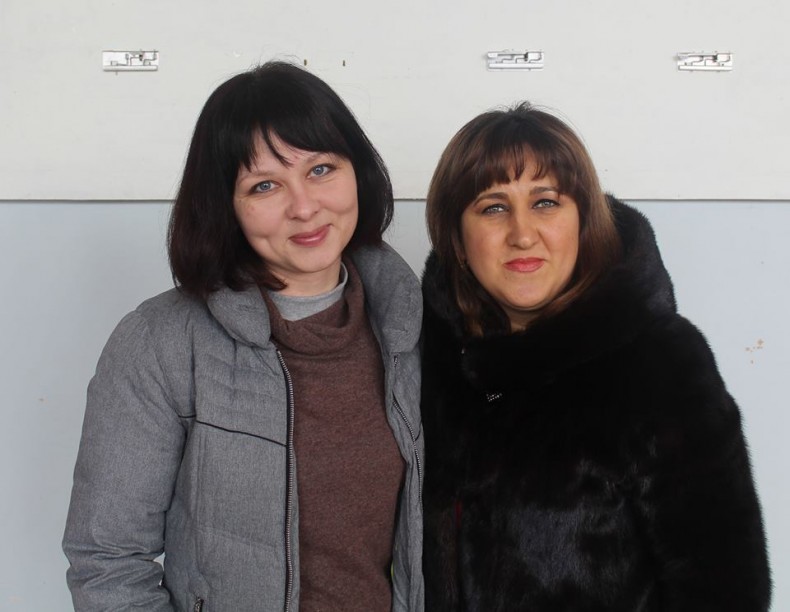
Torments, Torture Chambers, Executions: T4P Initiative Presents Two Submissions to the International Criminal Court
Information about extrajudicial executions of Ukrainians by the Russian military and Russian torture chambers in...
28 September 2023
The State Migration Service of Ukraine stubbornly refused to issue a passport of Ukraine for 16-year-old Anush, who was born and raised in Ukraine but is not of Ukrainian origin.
The reason for refusal was that she could not provide the passport of her father, because it was lost because of the war in eastern Ukraine – the family had to leave the occupied Donetsk, where she lived for a long time.
The girl’s mother, Mrs. Eleonora, and her family had become displaced for the second time in their lives. The family fled from war twice. For the first time, in autumn 1988, her family and she were forced to leave their home in Azerbaijan and received an official refugee status in Armenia and then went to Ukraine, where her children were born. But the war caught up the family here – in 2014 the woman with her husband and children had to flee again, this time from occupied Donetsk.
‘We had to saved our lives again. We left Donetsk in summer by one of the last trains, leaving everything there. My children and I were taken to the appropriate register of internally displaced persons, as evidenced by a certificate of registration of internally displaced persons, issued by the Department of Social Welfare of Sumy City Council’, says Mrs. Eleonora.
When the girl was 16 years old, she went to the territorial unit of the Migration Service in the city to get a passport. There she received a refusal. Employees of the Migration Service, except for documents of her mother, demanded a proof of citizenship of her father. At the time of the birth of a girl, her father had already received Ukrainian citizenship, and his mother had a permanent residence permit. However, the girl’s birth certificate was done with a mistake – the father was mentioned there as a citizen of Armenia.

The girl’s family could confirm Ukrainian citizenship of the father only by a copy of the lost passport. The man left without a passport at one of checkpoints of Donetsk, where he was detained by armed individuals, who through flimsy reasons for his badly beaten, robbed and destroyed personal belongings, including passports.
Since migration services stubbornly refused to issue a passport of Anush, who was 16 years old, she and her mother asked for help the Sumy public reception of the Ukrainian Helsinki Human Rights Union.
Migration services had no grounds to refuse to issue a passport of Ukraine to the girl. As stated on the official website of the State Migration Service of Ukraine in the section “Acquiring the citizenship of Ukraine by birth”, depending on the reason for the citizenship: if the person’s parents or one of the parents at the time of her/his birth were citizens of Ukraine (first part of Article 7 of the Law), one of the parents must submit the following documents: application for registration of acquiring the citizenship of Ukraine by birth; copy of birth certificate of the person; copy of the passport of citizen of Ukraine or other copy of the document confirming the fact of one of parents’ being a citizen of Ukraine at the time of birth under Article 5. All these documents were available’, says the assistant to the coordinator of UHHRU public reception, Nataliia Yesina.
Lawyers of the reception prepared a formal application to the territorial division of the State Migration Service in the city. They asked to provide a written explanation regarding the procedures for obtaining a passport of Ukraine in this case with reference to the specific legislation of Ukraine. This time officials suddenly changed opinion and sent a message to the girl, asking to come to them to get a passport of a citizen of Ukraine.
Anush could not get a passport for nearly a year from the day when she was 16 years old. Although, according to the Ukrainian legislation has the right to do so, despite the difficulties with her father’s passport. Here, on the one hand, the question arises why employees of the State Migration Service create obstacles and complicate the simple procedure of issuing a passport, instead of helping to resolve the problem? On the other hand, the story once again shows that the harder we fight for our rights, the sooner the time will come when civil servants faithfully fulfill their duties. And it should be in a legal state.
Prepared by Tetiana Honcharuk
If you find an error on our site, please select the incorrect text and press ctrl-enter.

Information about extrajudicial executions of Ukrainians by the Russian military and Russian torture chambers in...
28 September 2023

Since the beginning of the full-scale Russian invasion of Ukraine, about 150,000 civilians who fled...
17 October 2022
Taras Shevchenko National University of Kyiv and its student community in cooperation with leading Ukrainian...
13 September 2022

Ukraine’s latest request to the European Court of Human Rights (ECtHR) to order Russia to...
07 September 2022